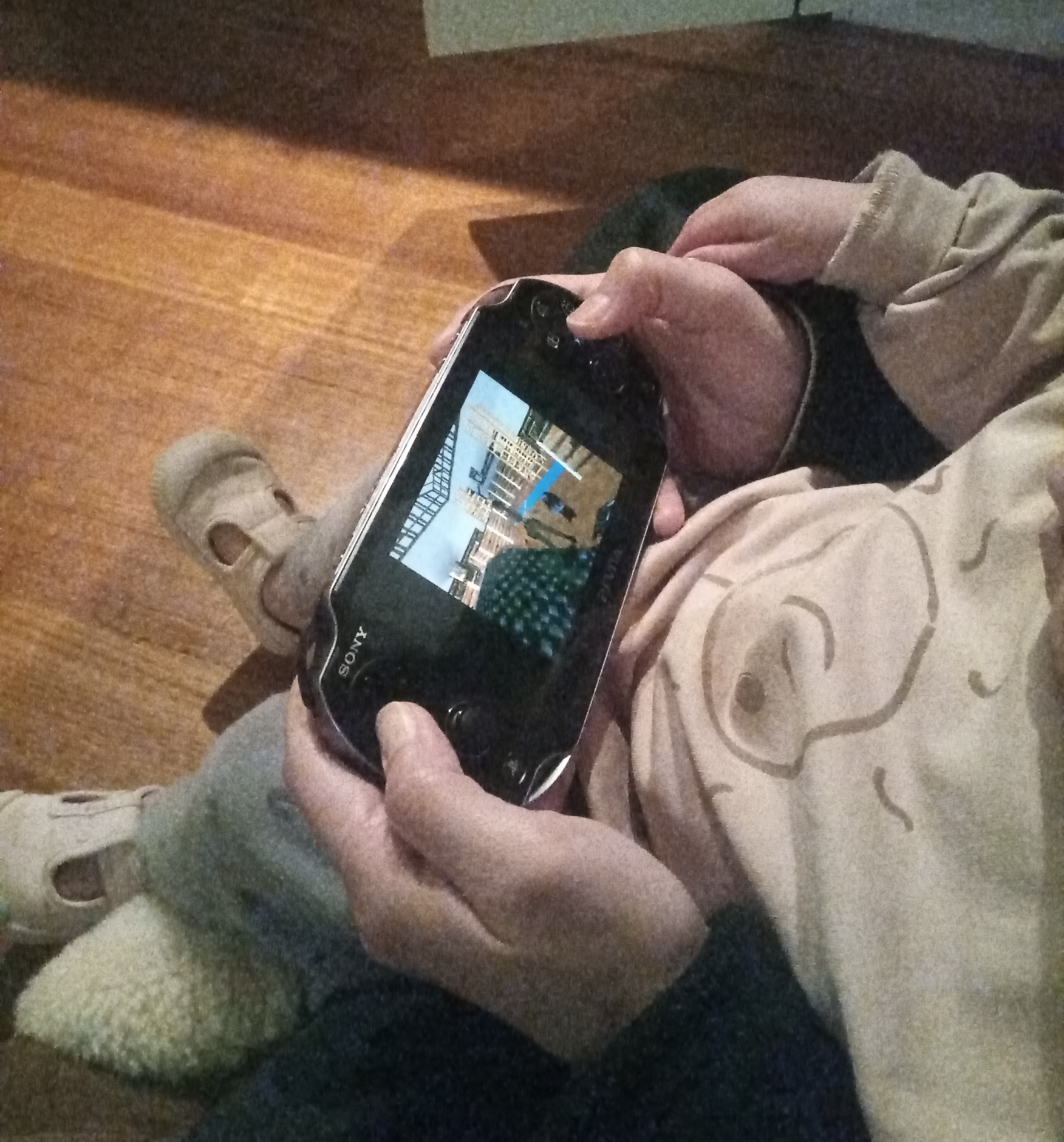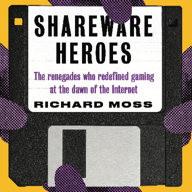@MossRC Karen Chun of Redwood Games! Solo dev behind classics like Word Rescue and Pickle Wars, who was also apparently very active giving advice and helping out on the early internet and Compuserve gamedev community. Really wanted to get her for an interview her for http://fringe.games/ a few years back but it didn't work out at the time.
@MossRC related/unrelated - I just finished the book and found it a really good read. Felt like a great ride through it all, delving into detail just where it was needed to illustrate what was happening at the time. I found it a good balance between the broad brush strokes whilst telling loads of stories I never knew. Thanks! :-)
I imagine you already have her but Jennifer Diane Reitz! Boppin' holds a very special place in my heart. She rocks.
I sometimes see critiques of my Shareware Heroes book complain that it didn't cover enough not-men or feature enough games from beyond the US, which is fair enough but there's a reason for that. It was skewed towards men and US games because that's the reality — the shareware market was overwhelmingly US-dominated and male-dominated in both revenue and development, and Shareware Heroes focused on illustrating the stories that drove the software distribution and business revolution that shareware games ushered in (and the ones that tried but failed).
But I spent weeks searching for ways to integrate more non-US and non-male (and non-white and non-cis) stories into the book and did so wherever I felt I could get it to work within the core narrative flow of said biz/distribution revolution (eg the stories behind *Oxyd* and *Grandad* and *Caper in the Castro*, stories involving various UK/Aus devs, mentions in nearly every chapter of works involving women/non-binary people, a chapter on the UK/EU licenceware scene, the story behind a key UK-based shareware distributor, etc). I tried to find out more about shareware in Japan, too, but got trapped behind a language barrier.
I believe the book is representative of the shareware scene, at least in a big-picture kind of way, *BUT* there are loads of things I missed due to space/narrative constraints or ignorance (or, in a couple of instances, not wanting to be too Apogee and Epic-heavy), so what I'd like to do is publish some blog posts at https://sharewareheroes.com that highlight/celebrate some of those people and things missed. So if there's a shareware game creator you'd like to celebrate or recognise from the 1980s or 90s who is a) not cis-male or b) a cis-male who's not American or British or Australian, regardless of whether I featured them in the book, tell me here. It doesn't matter if they were "notable" or popular or influential or not. I'll boost your reply and add them to one of these blog posts.
i put together a long hopefully helpful curation of alternative game engines. there are so many, some deserve a lot more attention, all with their own strengths and benefits.
"The Generous Space of Alternative Game Engines (A Curation)"
http://www.nathalielawhead.com/candybox/the-generous-space-of-alternative-game-engines-a-curation
keep fighting the good fight!
(re-posts appreciated 😊🙏💕✨)
~
#GameDev #IndieGameDev #IndieDeveloper #IndieDev #Software #Coding #Tools #Curation #Blog
Volition was bought by THQ in 2000, bought by Koch Media in 2013 after THQ went bankrupt, then Koch was acquired by the company wearing the THQ skin suit (THQ Nordic, later renamed Embracer) in 2018.
It's shutting down now, but 23 years is an awful long time for a studio to live without controlling its own destiny and in spite of rotating corporate masters often with middling means/competence.
@CodingItWrong @MossRC If you’re loading up a new Mac OS 9 system with games, you should take a look at the project I’ve been working on for the past couple of months… https://classicmacdemos.com/
Lots of games (and more to come) in ready-to-play form :)

@CodingItWrong Apple Confidential 2.0 covers that era a bit. I’ve not read the Making of Newton book, but it gets into a specific part of the story at Apple in those years. And there’s a film called Love Notes to Newton that I never got around to seeing. Those are the only ones I can think of. There are a lot of articles online and in old magazines, too, but they’re pretty scattered around.
One of the foundational skills that most indies need to learn is interaction design.
What games are built from!
Issues
- Unclear affordances
- Weak feedback
- Too many verbs
- Over emphasis of evocative moments that don't match the stage of prototyping.
Learn
- What language of affordances is spoken by your audience?
- What is functional / utilitarian feedback?
- What are your minimal key verbs?
- How to templatize affordances & feedback to maximize reuse and minimize learning?
Tore through John Romero's "Doom Guy" in two days. I was moved, & learned a ton. His open and insightful account of 1980s, 90s & 2000s game-dev stirred powerful memories.
Reading chapter 5, I felt like I finally got to meet the crazy kid who wrote & mailed this letter in 1985.💾📨
(John assures me I wrote back, but the letter hasn't turned up in either of our archives. I hope it does someday, I'd be curious to read it.)


